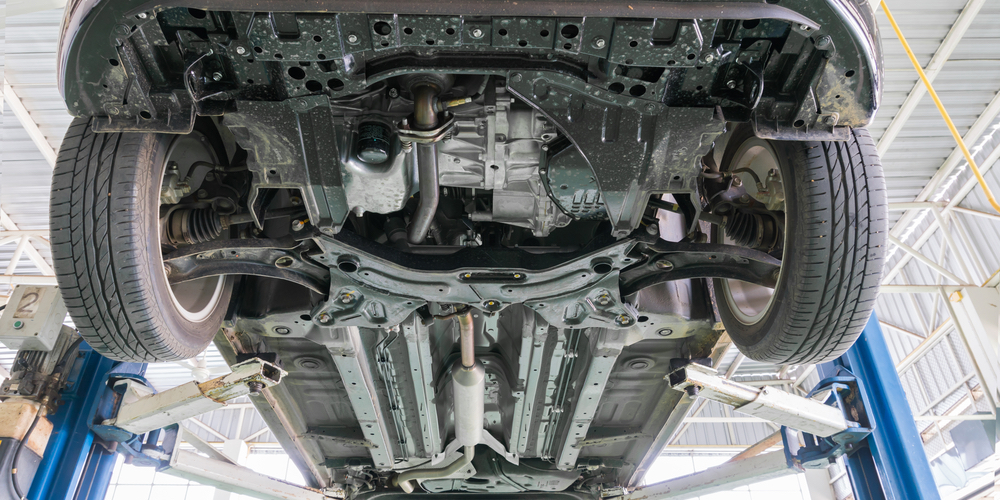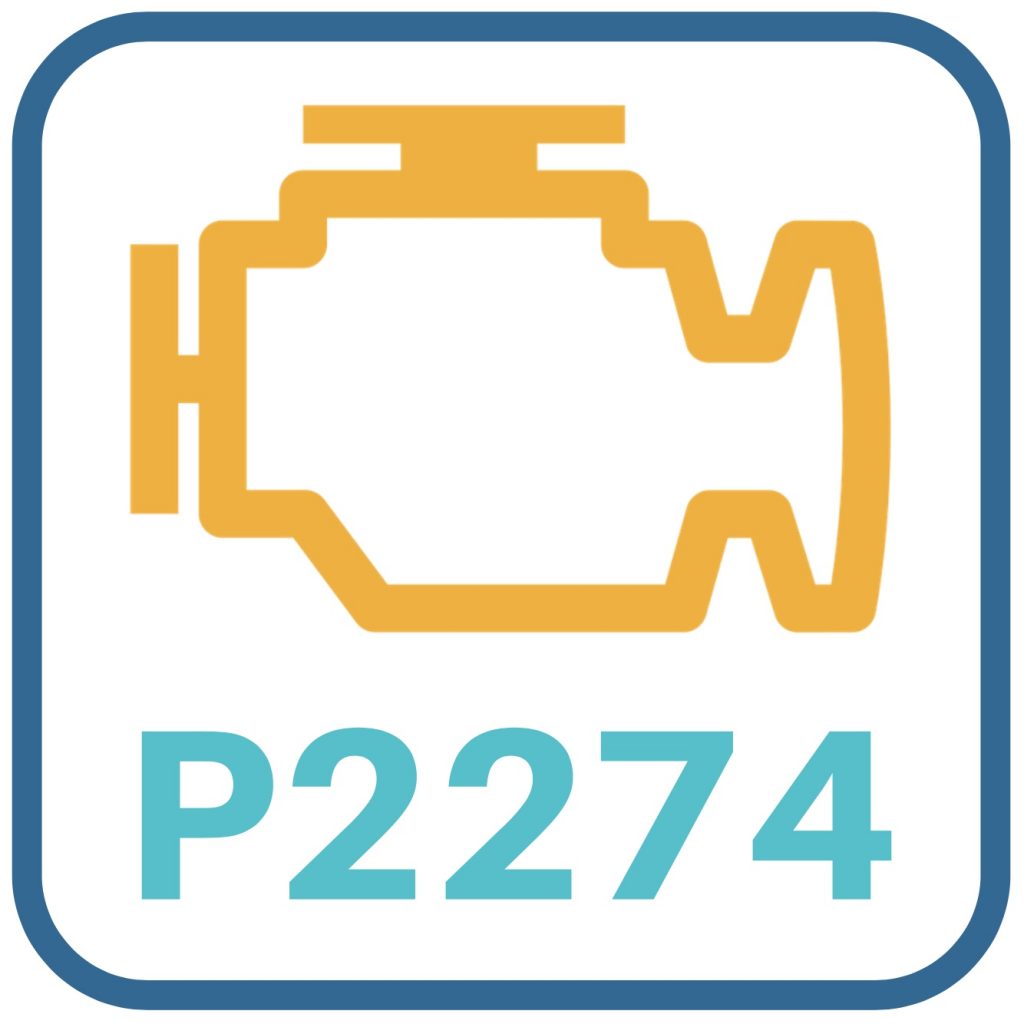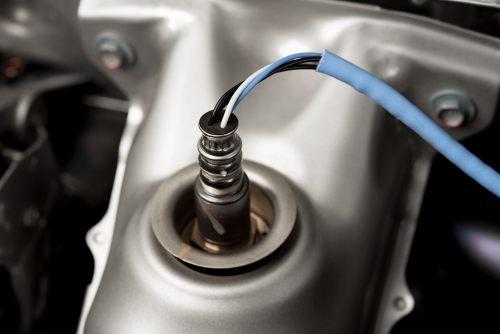P2274 is a general DTC trouble code. It means that the third oxygen sensor located on bank 1 is continuously sending a voltage signal that indicates there is a lean air/fuel mixture.
This does not necessarily mean that the vehicle is running lean (although it can). It’s usually caused by a bad oxygen sensor, or an exhaust leak.

How to Find Bank 1 Sensor 3
There are oxygen sensors on both sides of the catalytic converter (sometimes more than one, as is the case with this code). This lets the vehicle read the exhaust before and after it has run through the catalytic converter to make sure that it is functioning correctly. Here’s what P2274 means, and how to find Bank 1 Sensor 3.
P2274: O2 Sensor Signal → Biased/Stuck Lean (Bank 1 | Sensor 3)
- Bank 1 is the side of the engine with the first cylinder. On four cylinder engines, you don’t have to worry about this, as there is only one cylinder head. If you do have more than one cylinder head, you will need to look up where cylinder one is for your particular engine.
- Sensor 3 is “downstream” of the catalytic converter, which means that it is the sensor that comes after the catalytic converter. P2270 affects Bank 1 Sensor 2. If you have P2274, but no P2270, that’s a very strong indication that the bank 3 sensor or wiring going to it is bad. To find the sensor, start at the exhaust manifold and count sensors until you get to the third one in line.
P2274 Symptoms

There are usually no symptoms associated with P2274. The code is indicating that the signal coming from the oxygen sensor at B1S3 is leaner than it should be.
The signal from the oxygen sensor upstream of the catalytic converter does not agree with the lean condition indicated by the downstream oxygen sensor. If it did, you’d have P0171.
There are usually no drivability issues when P2274 appears by itself.
P2274 Causes

Here are some of the more common causes of P2274.
Exhaust Leak (Likely)
An exhaust leak is one of the more common reasons why this code is thrown. If an exhaust leak is big enough to cause P2274, it’s probably going to be large enough to make some noticeable noise. Keep that in Mind
Oxygen Sensor (Highly Likely)

If you aren’t hearing an exhaust leak, the most likely cause of P2274 is a bad O2 sensor. Take a look at the wiring going to it and see if it looks cracked or corroded. Oxygen sensor wiring harnesses (due to their proximity to the exhaust system) have some of the roughest lives of any automotive wiring.
You can check the wiring harness with a multimeter set to OHMS. Check the resistance compared to the factory specs. Or if you have dual exhaust, check it vs the other downstream O2 sensor on bank 3.
You can also check the voltage at the oxygen sensor if you have a good scan tool. It should fluctuate as you press the gas. If it’s stuck at 0, that would indicate that the sensor itself is bad.
Other Causes
Here are some other (although not as common) issues that can cause P2274
- Low fuel pressure
- Loose O2 sensor
- Bad fuel injector at bank 1
- Bad purge valve
- Bad PCM (particularly some Chrysler vehicles)
Conclusion
It’s normally the oxygen sensor that needs replaced when P2274 appears. But, there can be other issues as well. Good luck diagnosing the code.
